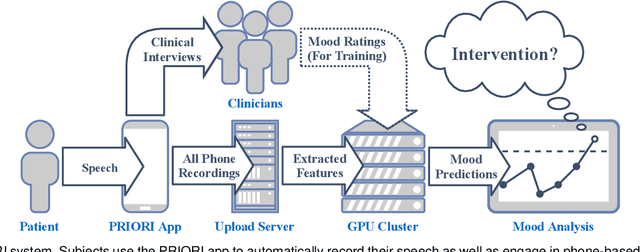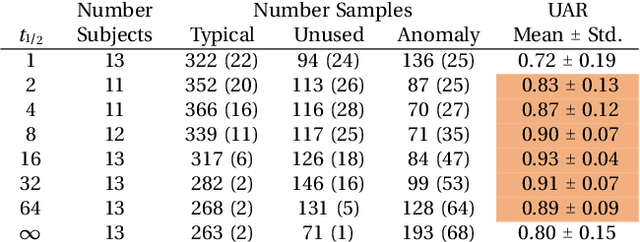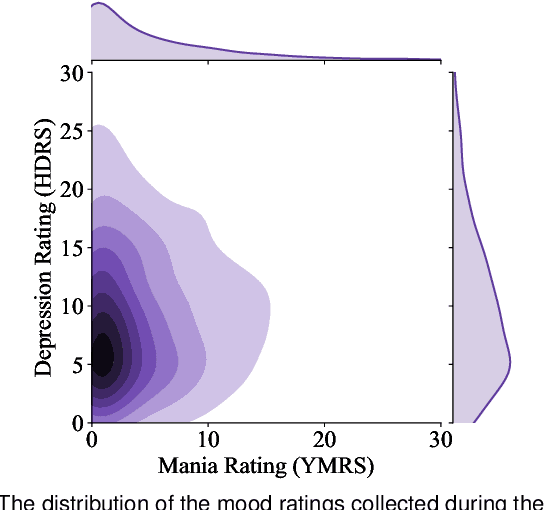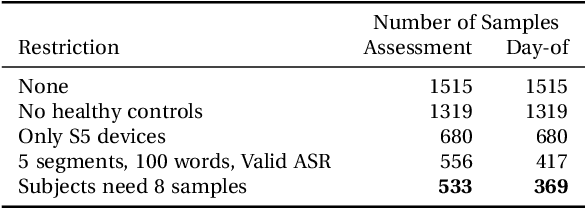Steve Anderau
When to Intervene: Detecting Abnormal Mood using Everyday Smartphone Conversations
Oct 03, 2019



Abstract:Bipolar disorder (BPD) is a chronic mental illness characterized by extreme mood and energy changes from mania to depression. These changes drive behaviors that often lead to devastating personal or social consequences. BPD is managed clinically with regular interactions with care providers, who assess mood, energy levels, and the form and content of speech. Recent work has proposed smartphones for monitoring mood using speech. However, these works do not predict when to intervene. Predicting when to intervene is challenging because there is not a single measure that is relevant for every person: different individuals may have different levels of symptom severity considered typical. Additionally, this typical mood, or baseline, may change over time, making a single symptom threshold insufficient. This work presents an innovative approach that expands clinical mood monitoring to predict when interventions are necessary using an anomaly detection framework, which we call Temporal Normalization. We first validate the model using a dataset annotated for clinical interventions and then incorporate this method in a deep learning framework to predict mood anomalies from natural, unstructured, telephone speech data. The combination of these approaches provides a framework to enable real-world speech-focused mood monitoring.
 Add to Chrome
Add to Chrome Add to Firefox
Add to Firefox Add to Edge
Add to Edge